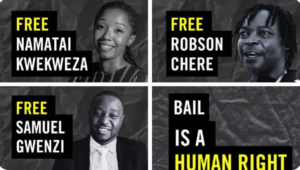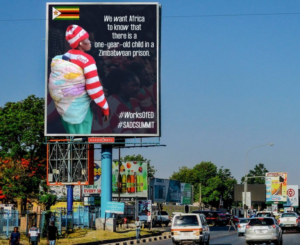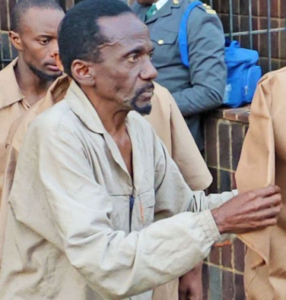HEADLINE: MNANGAGWA’S NEED FOR A CAPTURED JUDICIARY TO STAY IN POWER
In countries like Zimbabwe and Myanmar, the judiciary plays a key role in supporting undemocratic transfers of power. This has been evident from the Arab Spring near-miss for Zanu PF, the 2017 military coup in Zimbabwe, and now the military coup in Myanmar. Chief justices, who control the judiciary, give legitimacy to these power transitions. While this type of legitimacy is not as strong as that from the people, it is essential for leaders who cannot rely on military power alone. This article explains why President Mnangagwa of Zimbabwe needs a judiciary that supports him, led by Chief Justice Malaba or someone similar, to maintain his position against military factions like the one led by Vice President Chiwenga.
A chief justice decides who holds the highest office in the country and whether they can stay in that office, especially during illegal power transitions. This was the case in Zimbabwe in 2017. Factions within the ruling party, Zanu PF, and their allies in the judiciary, such as Chief Justice Malaba, ensure they do not lose power like former President Mugabe did. This judiciary support gives a weaker form of legitimacy compared to popular consent. For example, the opposition represents the people’s will, which is the true source of government legitimacy. Since Mnangagwa lacks this, he relies on a judiciary that supports him and the military.
Chief Justice Malaba’s career as a supporter of Mnangagwa is ending. Without Malaba, Mnangagwa risks losing his position, facing politically motivated prosecutions, and losing his wealth. To prevent this, Mnangagwa needs to keep his supporters in power. Zanu PF, taking advantage of the pandemic, has made constitutional amendments without public hearings, which usually prevent such actions. With a Zanu PF-dominated parliament, these amendments can be passed quickly to secure Mnangagwa’s position.
These amendments are just the beginning. The opposition, driven by the need for good governance, will try to stop Mnangagwa’s plans. Life outside Zanu PF is difficult, as Mnangagwa has said. Losing power means losing access to resources, as seen with Mugabe. Mnangagwa knows that losing his wealth is inevitable if he loses power. His anti-corruption commission, which targets political opponents, could be used against him by a new faction, likely led by Chiwenga. Staying in power is logical for Mnangagwa but not guaranteed. The opposition could remove him through impeachment or a military coup by Chiwenga’s supporters. To prevent this, Mnangagwa needs a loyal judiciary to reject any power transitions that would remove him.
A condemned power transition can attract negative international attention, military action, or economic sanctions against those involved, like the Chiwenga faction. Mnangagwa can then triumph over ambitious factions that threaten his power. Extending Malaba’s term helps Mnangagwa stay in power. Amending the constitution to remove term limits would guarantee Mnangagwa’s security.
If Mnangagwa extends Malaba’s term, Malaba will likely support Mnangagwa in any legal challenges to this amendment. This loyalty would secure Mnangagwa’s power, making Malaba’s tenure less critical after 2023. Mnangagwa can then look for another loyal judge.
With an amended constitution allowing unlimited terms for Mnangagwa, the military would have no basis to remove him. The judiciary would have legitimized the illegal amendment, weakening any factions aiming to replace Mnangagwa.
The opposition’s best strategy is to divide and conquer. They should tactically ally with factions like Chiwenga’s to stop Mnangagwa’s amendments. This alliance, without compromising their ethics, could prevent further devaluation of the constitution. If successful, Malaba’s appointment would be pointless.
In summary, Mnangagwa’s fear of losing power and facing justice drives his need to stay in power. He aims to use constitutional amendments and a loyal judiciary to secure his position. However, the opposition’s strategic actions could thwart his plans and protect the constitution.



